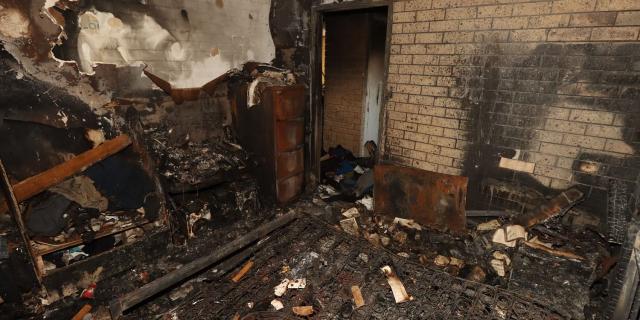A rise in the severity of house fires due to an increase in popularity of rechargeable lithium-ion battery products in homes has prompted a warning for Greater Geelong residents to know the safety risk this Christmas.
Suncorp Group’s executive general manager home claims customers Alli Smith said Christmas was already a high-risk period for housefires but could be made worse by not understanding the safe use, storage and dangers of lithium-ion battery products like e-scooters and e-bikes.
“Most modern devices like laptops, mobile phones, power tools, e-cigarettes and electric vehicles have rechargeable lithium-ion batteries containing highly flammable electrolytes, but a surge in popularity of items like e-scooters and e-bikes and a link to housefires in recent years is concerning,” Ms Smith said.
“These batteries, if used, charged, stored or disposed of incorrectly, could be prone to intense, difficult-to-extinguish fires when damaged or overheated and pose a significant risk in the home.
“What’s particularly concerning is that they can often explode or emit an intense self-sustaining fire that is not easily extinguishable by water or traditional fire extinguishers making the dangers and damage from this type of fire worse.
“And while the batteries might not have always been the cause of the fire, the fire can be so much worse if there are more flammable items in homes like lithium-ion batteries.
“Fires caused by or made worse by lithium-ion batteries can be life threatening, so the dangers are very real.”
Ms Smith said that while the number of fire claims has decreased over the last decade, there has been a general shift towards higher severity house fire claims.
“What our data is showing us is that small fire claims like those generally caused by cooking are decreasing, which makes sense with environmental trends like the rise of food delivery services and the increased use of items like air fryers which don’t use a lot of oil,” she said.
“But when there is a house fire, it’s more severe, notably due to items like batteries, electrical faults and appliances making it so much worse.
“For instance, in 2014, just 82 of our claims were for large fires over $400,000; that is now up to 160 in 2023.”
According to the ACCC, it’s estimated a household will have on average 33 devices powered by lithium-ion batteries by 2026, prompting its own recent warning for consumers to use and store batteries safely to prevent fires.
Victorian fire agencies say they respond to at least one significant lithium-ion battery-related fire each week and this trend is expected to increase.







